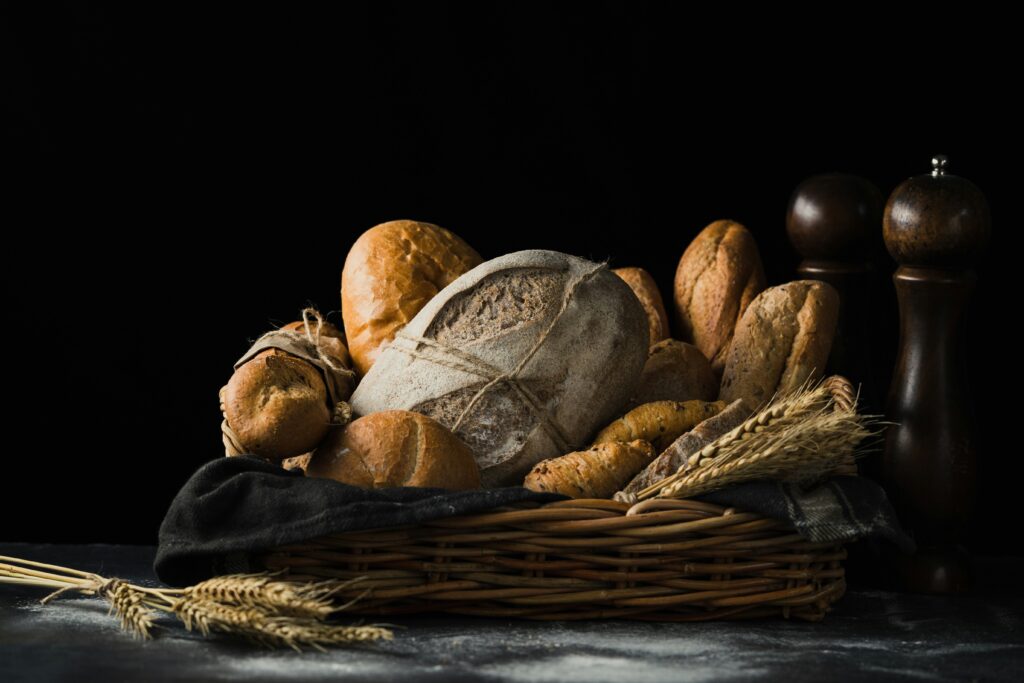Masood Ashraf, USA

For most of human history, bread has been the road traveller’s ration and the labourer’s daily fare, yet in today’s climate of fad diets, it is often blamed for modern epidemics of obesity and diabetes. Such blanket condemnation overlooks bread’s part not only in civilisation’s rise but also in the language of revealed religions. Admittedly, people with coeliac disease, gluten sensitivity or certain metabolic disorders must avoid or limit it, but for the majority, the true difficulty lies in overeating, poor-quality flour and sedentary habits, not in bread itself.
Bread in scripture and tradition
In the Gospels, Jesus, peace be upon him, taught his disciples to pray for “our daily bread” (Matthew 6:11) and fed five thousand with five loaves and two fish, demonstrating God’s ability to multiply humble provisions (Matthew 14:13-21). In the Hebrew Bible, Elijah receives a loaf from an angel in the wilderness (1 Kings 19:5-6); Abraham hastens to bake bread for angelic guests (Genesis 18:6); and Ezekiel is instructed to prepare an austere loaf from several grains for survival in siege conditions (Ezekiel 4:9).
Islam likewise treats bread as a ni‘mah, a blessing. On one occasion, the Holy Prophet Muhammadsa advised, “Respect bread, for it is from the blessings of the heaven and the earth.” (Al-Muhit al-Burhani, Kitab al-istihsani wa l-karahiyyah, Dar Al Kotob Al Ilmiyah, Vol. 5, p. 351) His practice of picking up fallen morsels and disliking any waste underlines that respect, too. (Sunan Ibn Majah, Kitab al-at‘imah, Hadith 3277)
The Promised Messiahas, in a dream, saw an angel hand him a luminous loaf and say, “This is for you and for the dervishes who are with you.” He interpreted it to mean that God Himself would sustain both him and those followers who had sacrificed worldly comforts for their faith. The vision, therefore, links physical bread to divine blessings. (Tadhkirah [English], 2019, p. 23)
Prophetic guidance on moderation
Neither the Holy Quran nor the sunnah endorses gluttony or blanket abstinence. “A human being fills no worse vessel than his stomach. It is sufficient for a human being to eat a few mouthfuls to keep their spine straight. But if he must (fill it), then one third for food, one third for drink and one third for air,” taught the Holy Prophetsa. (Sunan Ibn Majah, Kitab al-at‘imah, Hadith 3349). Applied to bread, the rule is simple: choose wholesome loaves, eat moderate portions, stay active and waste nothing.
What science now confirms
Modern research echoes that timeless counsel. The Harvard TH Chan School of Public Health reports that replacing refined grains with whole grains lowers the risk of heart disease, obesity and type 2 diabetes (“Whole Grains,” Harvard Nutrition Source, harvard.edu). Long-fermented sourdough and stone-ground whole-wheat breads provoke a gentler rise in blood sugar than standard white loaves. Populations following Mediterranean eating patterns – bread in moderation, plentiful vegetables, olive oil and regular movement – consistently show lower rates of chronic disease.
A thread through history
From Egypt’s clay ovens to South Asia’s communal tandoor and Europe’s wood-fired bakeries, every culture has fashioned its own loaf: pita and khubz in the Levant, naan along the Silk Road, rye in the north, roti and chapati across the subcontinent, tortillas in Meso-America and bannock among Canada’s First Nations. Civilisations have travelled, traded and toiled on the strength of these portable calories; if bread were intrinsically harmful, the story of humankind would look very different.
Conclusion
Bread is neither a panacea nor a poison. In Islamic terms, it is a blessed provision that calls for gratitude when shared, responsibility when produced and restraint when eaten. Observing those principles, a whole-grain or naturally leavened loaf can retain its honoured place on the table without fear or apology. Bread is not the enemy; misunderstanding and misuse are. May we break bread with thankfulness, mindful of both body and soul.

